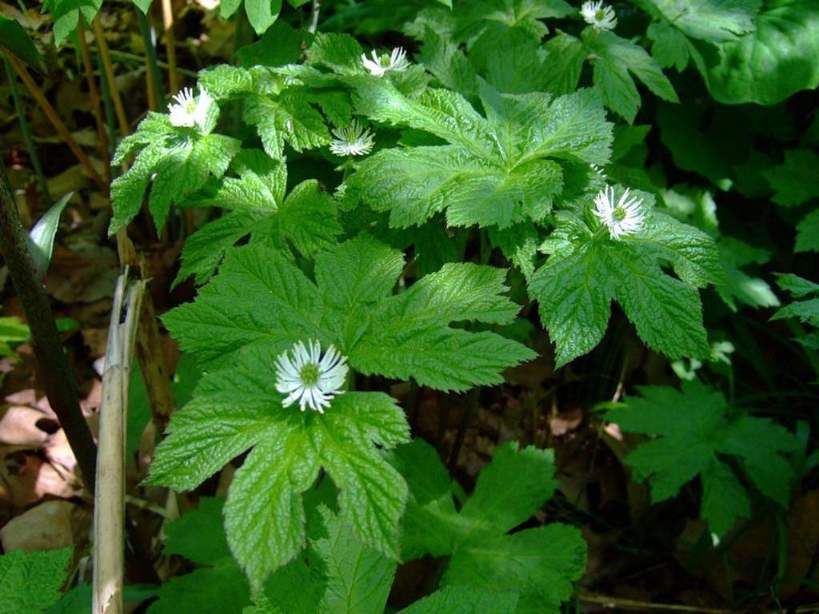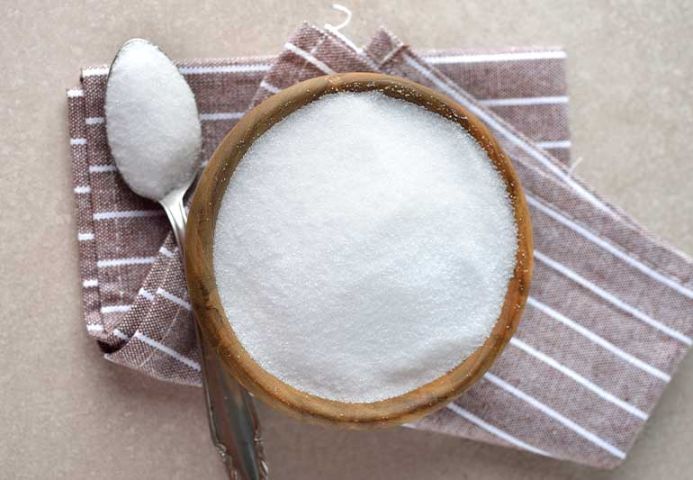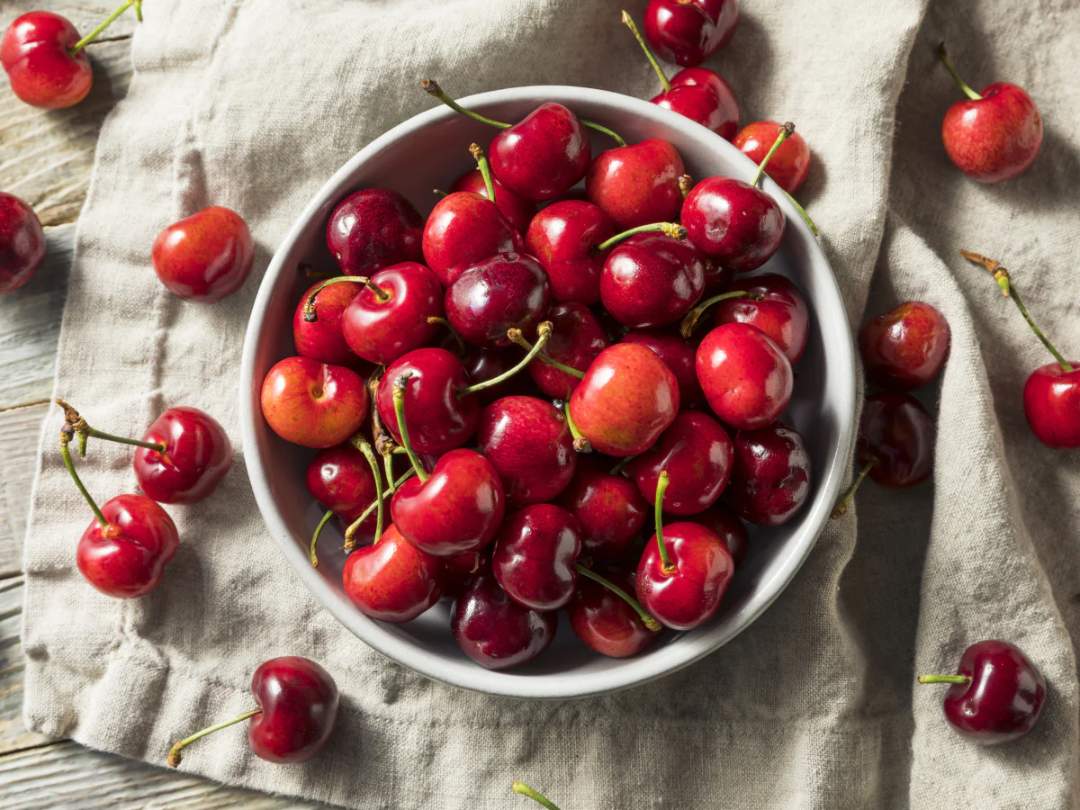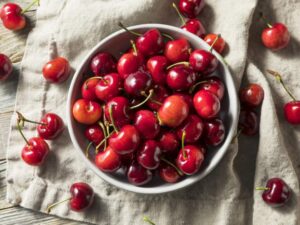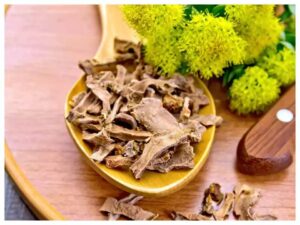The Discovery of Goldenseal
Exploring the Origins of an Enigmatic Herbal Remedy
Goldenseal is a plant native to the eastern regions of North America, where it has been used for centuries as a medicinal herb by Indigenous communities. The plant’s scientific name is Hydrastis canadensis, and it is a member of the buttercup family.
The story of how Goldenseal was first discovered is a fascinating one, full of twists and turns that illustrate just how unpredictable scientific discovery can be. In this article, we’ll explore the history of Goldenseal’s discovery and how it has been used throughout the centuries.
The First European Encounters
The first recorded European encounter with Goldenseal occurred in the early 1700s. A French explorer named Louis Jolliet was traveling along the St. Lawrence River when he encountered a group of Indigenous people who were using the herb to treat a variety of ailments. Jolliet was intrigued by the plant and decided to bring a sample back to France with him for further study.
Early Research
Back in Europe, the sample of Goldenseal was passed around among various scientists and botanists who were interested in studying the plant’s medicinal properties. However, it wasn’t until the early 1800s that a German chemist named Johann Buchner was able to isolate and identify the plant’s key active compound, a substance he named hydrastine.
Over the next few decades, Goldenseal became increasingly popular among physicians and healers in Europe and the United States. It was used to treat a wide range of ailments, including digestive issues, respiratory infections, and skin conditions.
Indigenous Knowledge
However, it’s important to note that the Indigenous communities who had been using Goldenseal for centuries already knew about its medicinal properties long before European explorers arrived on the continent. For these communities, Goldenseal was just one of many plants that were used to treat a variety of health issues.
In fact, the use of Goldenseal by non-Indigenous communities has led to concerns about cultural appropriation and exploitation. Many Indigenous leaders and healers argue that non-Indigenous people should learn from Indigenous communities about the proper ways to use traditional medicinal plants like Goldenseal.
Modern Uses
Today, Goldenseal is still used as a natural remedy for a variety of ailments. It is commonly used as a treatment for colds and flu, as well as for digestive issues such as diarrhea and constipation. Some people also use Goldenseal to help boost their immune system or to treat skin conditions such as acne and eczema.
However, it’s important to note that Goldenseal can have side effects and can interact with other medications. As with any natural remedy, it’s important to talk to a healthcare provider before using Goldenseal as a treatment.
Conclusion
The story of Goldenseal’s discovery is a complex and fascinating one. From its Indigenous origins to its widespread use in modern times, the plant has played a significant role in the history of natural medicine. While there are still concerns about cultural appropriation and exploitation, there is no denying the powerful healing properties of this enigmatic plant.
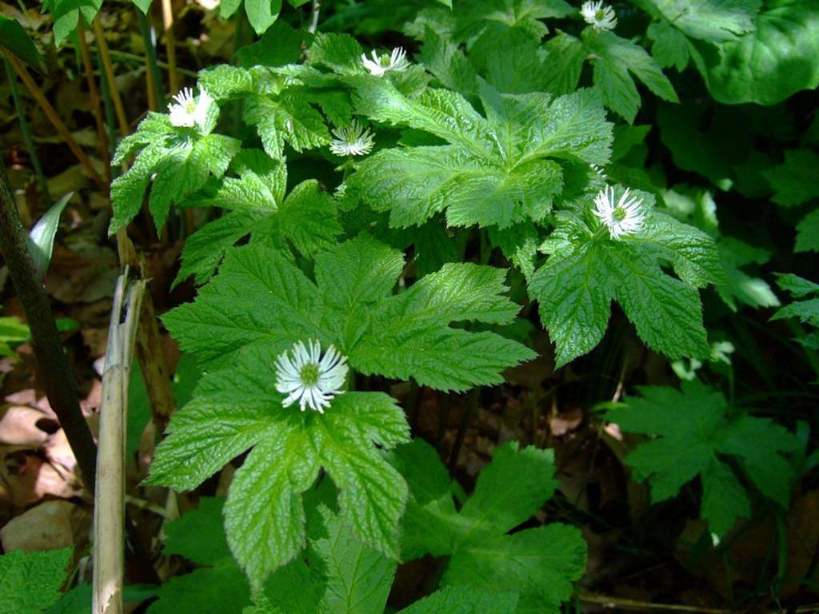
The Benefits of Goldenseal for Health
Exploring the Potential Health Benefits of an Enigmatic Herbal Remedy
Goldenseal (Hydrastis canadensis) is a medicinal herb that has been used for centuries by Indigenous communities in North America. It is a member of the buttercup family and contains a number of powerful compounds that have been shown to have a variety of health benefits. In this article, we’ll explore some of the potential benefits of Goldenseal for health.
Immune System Boost
Goldenseal has been shown to have immune-boosting properties, making it a potential treatment for colds, flu, and other respiratory infections. The herb contains a number of compounds, including berberine and hydrastine, which have been shown to stimulate the immune system and help fight off infections.
One study found that a combination of Goldenseal and Echinacea was effective in reducing the severity and duration of cold and flu symptoms. Another study found that Goldenseal may be effective in fighting antibiotic-resistant bacteria, making it a potential alternative to traditional antibiotics.
Digestive Health
Goldenseal has been used for centuries as a natural remedy for digestive issues. The herb contains a compound called berberine, which has been shown to have anti-inflammatory and antimicrobial properties.
Berberine has been found to be effective in treating a variety of digestive issues, including diarrhea, constipation, and inflammatory bowel disease. It works by reducing inflammation in the gut and killing harmful bacteria that can cause digestive problems.
Skin Health
Goldenseal has been used for centuries as a natural remedy for skin conditions. The herb contains a number of compounds that have been shown to have anti-inflammatory and antimicrobial properties.
One study found that Goldenseal was effective in treating acne, reducing inflammation and killing bacteria that can cause breakouts. Another study found that the herb was effective in treating eczema, reducing itching and inflammation in the skin.
Eye Health
Goldenseal has been shown to have potential benefits for eye health. The herb contains a compound called berberine, which has been shown to have anti-inflammatory and antimicrobial properties.
One study found that berberine was effective in treating eye infections caused by bacteria. Another study found that the compound was effective in reducing inflammation in the eye, making it a potential treatment for conditions like uveitis and conjunctivitis.
Heart Health
Goldenseal has been shown to have potential benefits for heart health. The herb contains a number of compounds, including berberine, that have been shown to have anti-inflammatory and antioxidant properties.
One study found that berberine was effective in reducing cholesterol levels and improving heart function in people with high cholesterol. Another study found that the compound was effective in reducing inflammation in the arteries, making it a potential treatment for conditions like atherosclerosis.
Cancer Prevention
Goldenseal has been shown to have potential benefits for cancer prevention. The herb contains a number of compounds that have been shown to have anti-cancer properties.
One study found that berberine was effective in inhibiting the growth of cancer cells in the breast, colon, and liver. Another study found that the compound was effective in reducing the spread of cancer cells in the bladder.
Side Effects and Precautions
While Goldenseal has a number of potential health benefits, it can also have side effects and interact with other medications. Some people may experience stomach upset, nausea, or vomiting when taking Goldenseal.
The herb can also interact with medications like blood thinners and antibiotics, so it’s important to talk to a healthcare provider before using Goldenseal as a treatment.
Conclusion
Goldenseal is a powerful medicinal herb that has been used for centuries to treat a variety of health issues. From its immune-boosting properties to its potential benefits for digestive health, skin health, eye health, heart health, and cancer prevention, Goldenseal is a versatile herb that has been the subject of numerous scientific studies.
However, it’s important to note that Goldenseal should be used with caution and under the guidance of a healthcare provider. Like any natural remedy, it can have side effects and interact with other medications.
Additionally, there are concerns about the sustainability of Goldenseal harvesting. The plant is considered to be at risk due to over-harvesting, and there are efforts underway to promote sustainable harvesting practices and protect the plant’s natural habitats.
In conclusion, while Goldenseal’s discovery and use throughout history have been perplexing, its potential health benefits are not to be ignored. As with any natural remedy, it’s important to approach it with caution and under the guidance of a healthcare provider. By doing so, we can continue to explore the full range of Goldenseal’s potential as a powerful natural remedy.
The Nutritional Components and Core Ingredients of Goldenseal
Alkaloids
One of the key components of Goldenseal is a group of compounds known as alkaloids. Alkaloids are naturally occurring chemical compounds that have a variety of biological effects.
Goldenseal contains a number of alkaloids, including berberine, hydrastine, and canadine. These compounds have been shown to have antimicrobial, anti-inflammatory, and immune-boosting properties, making them potentially useful for treating a variety of health issues.
Flavonoids
Flavonoids are another important class of compounds found in Goldenseal. These compounds are known for their antioxidant and anti-inflammatory properties.
Goldenseal contains a number of flavonoids, including quercetin and kaempferol. These compounds have been shown to have a variety of health benefits, including reducing the risk of heart disease and cancer.
Vitamins and Minerals
While Goldenseal is not a significant source of vitamins and minerals, it does contain small amounts of several important nutrients.
The herb contains small amounts of vitamin C, vitamin A, calcium, and iron. While these amounts are not significant enough to make Goldenseal a primary source of these nutrients, they do contribute to the herb’s overall nutritional profile.
Other Compounds
Goldenseal also contains a number of other compounds that have been shown to have potential health benefits.
For example, the herb contains a compound called beta-sitosterol, which has been shown to have cholesterol-lowering properties. It also contains a compound called alpha-linolenic acid, which is an omega-3 fatty acid that has been shown to have anti-inflammatory properties.
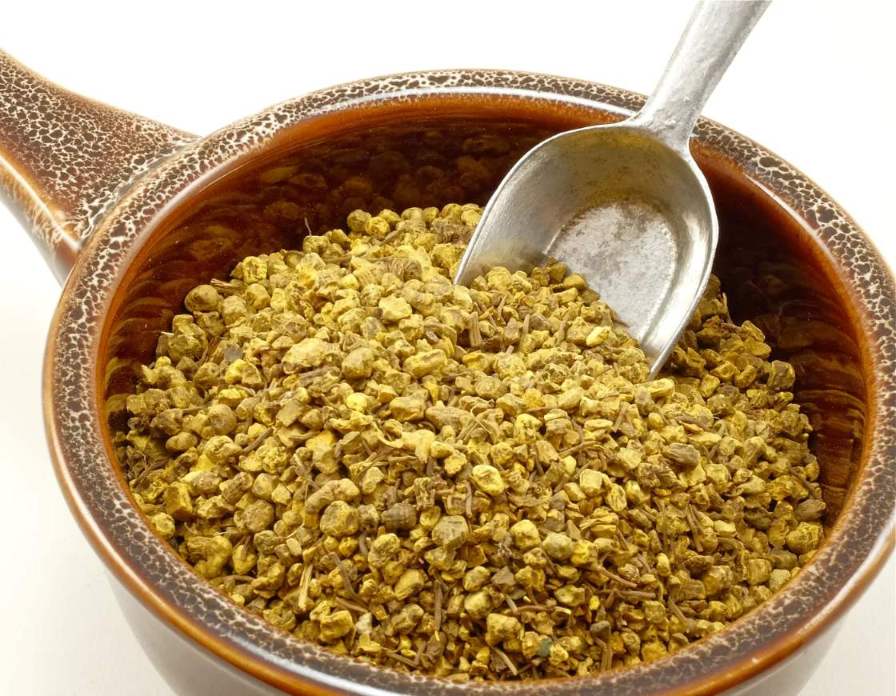
Methods for Consuming Goldenseal
If you’re interested in using Goldenseal as a natural remedy, there are several methods for consuming the herb. In this article, we’ll explore the different ways to use Goldenseal and the benefits and drawbacks of each method.
Capsules and Tablets
One of the most common ways to consume Goldenseal is in capsule or tablet form. This method is convenient and easy to use, as the recommended dosage is typically printed on the label.
Capsules and tablets can be found at health food stores and online retailers, and they often come in standardized dosages. However, it’s important to note that not all supplements are created equal, and some may contain additives or fillers that can dilute the effectiveness of the herb.
Tea
Another popular way to consume Goldenseal is by brewing it into a tea. To make Goldenseal tea, simply steep the herb in boiling water for several minutes, then strain and drink.
Drinking Goldenseal tea can be a soothing way to treat digestive issues or respiratory infections. However, it’s important to note that Goldenseal tea can have a bitter taste, and some people may find it difficult to drink.
Tincture
A Goldenseal tincture is a concentrated liquid extract of the herb. To make a tincture, the herb is steeped in alcohol for several weeks, then strained and bottled.
Tinctures can be added to water or other beverages and taken orally. They can also be used topically to treat skin conditions or infections.
One potential drawback of using a tincture is that the alcohol content can be high, which may be a concern for people who avoid alcohol for personal or health reasons.
Powder
Goldenseal powder is made by grinding the dried herb into a fine powder. The powder can be added to food or beverages, or it can be taken in capsules.
Using Goldenseal powder is a convenient way to consume the herb, but it’s important to note that not all powders are created equal. Some powders may contain fillers or additives that can dilute the effectiveness of the herb.
Other Preparations
There are several other ways to consume Goldenseal, including creams, salves, and ointments. These preparations are applied topically to treat skin conditions or infections.
Additionally, Goldenseal is sometimes used in combination with other herbs or supplements. For example, it’s often combined with echinacea to boost immune system support.
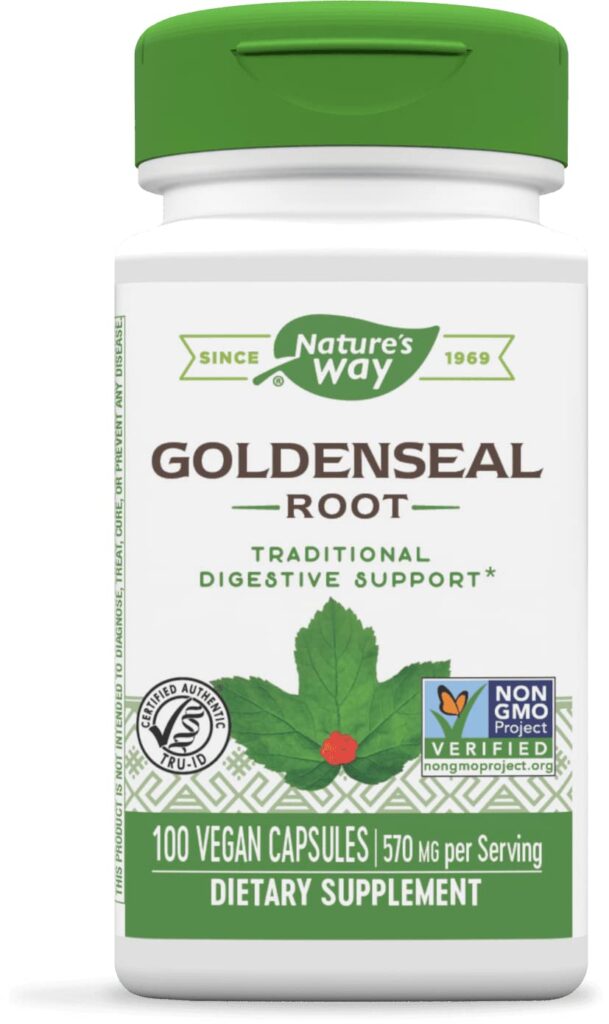
Potential Side Effects and When to Avoid Taking Goldenseal
From immune system support to digestive health and more, Goldenseal is a versatile natural remedy that has been used for centuries by Indigenous communities in North America.
However, like any natural remedy, Goldenseal can have potential side effects and interactions with other medications. In this article, we’ll explore some of the potential risks associated with using Goldenseal and when to avoid taking the herb.
Side Effects
Goldenseal can have a variety of potential side effects, including:
- Stomach upset: Some people may experience nausea, vomiting, or diarrhea when taking Goldenseal.
- Allergic reactions: Goldenseal can cause allergic reactions in some people, including hives, rashes, and swelling.
- Interactions with other medications: Goldenseal can interact with certain medications, including blood thinners and antibiotics.
- Liver damage: In rare cases, Goldenseal has been associated with liver damage.
It’s important to note that not everyone will experience side effects when taking Goldenseal. However, if you experience any of these symptoms while taking the herb, it’s important to stop use and speak with a healthcare provider.
When to Avoid Taking Goldenseal
There are certain situations where it’s best to avoid taking Goldenseal altogether. These include:
- Pregnancy: Goldenseal is not recommended for use during pregnancy, as it may cause uterine contractions.
- Breastfeeding: There is not enough research to determine if Goldenseal is safe for use during breastfeeding. It’s best to err on the side of caution and avoid the herb.
- Children: Goldenseal is not recommended for use in children under the age of 2. For older children, it’s important to consult with a healthcare provider before using the herb.
- Allergies: If you have a known allergy to Goldenseal or any of its components, it’s best to avoid using the herb.
- Medical conditions: If you have a medical condition, such as liver disease or a bleeding disorder, it’s important to speak with a healthcare provider before using Goldenseal.
Dosage and Safety Precautions
If you’re interested in using Goldenseal as a natural remedy, it’s important to approach the herb with caution and under the guidance of a healthcare provider.
It’s recommended to start with a low dosage of Goldenseal and gradually increase as needed. The recommended dosage for Goldenseal can vary depending on the form of the herb and the reason for use.
Additionally, it’s important to purchase Goldenseal from a reputable source to ensure that you’re getting a high-quality product. Look for supplements that are standardized to contain a certain percentage of berberine, one of the key components of Goldenseal.
